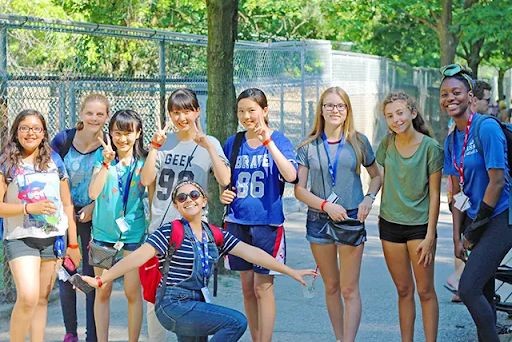After studying abroad, many children often complain to their parents about the reality of studying abroad, and their expectations are not the same at all.
The school campus is nothing like the ancient castles from Harry Potter, but a historic plain building; the campus is not yet as large as a domestic school. Canadian schools have a looser and more liberal learning atmosphere compared to domestic high schools.
After a short study abroad experience, everything has completely changed. When their status changes from a visitor to a local student, the hospitality of their teachers and classmates becomes more peaceful, and the students need to work hard to face independent study and life.
So how does one change that? The most important thing is, adjust your mindset and be at peace with your studying abroad.
Most children go abroad with an over-imagination of the beauty, warmth, and closeness of Canada, and when they come here to study, they find that they must spend a lot of time and energy studying, and their hopes are dashed.
To change this discomfort, adjust your mindset as quickly as possible and accept the situation that is now present.
There are 2 aspects and 6 tips that will help you to studying abroad as soon as possible.
I. Life – Homesickness, cultural shocks, and living habits differences
The three most common life challenges for newcomers to Canada are – homesickness, cultural shock, and living habits differences.
Thousands of miles away from home, thinking about your mother’s cooking, your sibling, and friends, these are all normal emotions. There are some differences in your own counties, for example, the food preference or language accents. So, it’s normal to miss home in a unfamiliar country.
For these life discomforts, there are some suggestions.
- Face your emotions and get busy.
Be honest with your emotions, don’t dwell on them all the time. You can keep busy, go to the gym, go to the movies, take the initiative to meet friends and be proactive about the local area. Students of Huron International School can participate in the school’s club activities, equestrian, golf, hockey and other sports, participate more in the school organized off-campus visits to museums, volunteer work, shopping and other activities, increase exposure, so that the brain does not have time to produce such emotions.

- Be proactive in understanding local habits.
Take the initiative to learn about the local culture, local habits such as food culture, garbage sorting, recreational activities, and ask your teachers and classmates, this is also a way to reach out to others and open up your life circle.
Early knowledge of local habits will not only help international students to integrate into their lives but will also help them to avoid other inconveniences that may result from not knowing the situation.

- Psychological preparedness for culture shock
Each region and country have its own basic social values and unique cultural practices, students who have recently left the country can spend their time in a normal way. They can go to as many activities as possible, interact with your classmates and teachers, participate in cultural festivals, etc. Only by taking part can students feel the real Canadian culture and get to know the country better.
II. Learning – Low English ability, afraid to speak, low manually ability
In Canada, there is a lot of interaction between teachers and students. Many students do not have the habit of speaking actively in class, and do not want to or know how to ask questions.
- Practice more, study more, and improve English
Listening and speaking. You can quickly improve your English listening skills after the first two months of adjustment; however, to understand the teacher’s content, it is not only by following the teacher but also do the review on time.

- Speak up and be open to questions
When the teacher asks a question for the students to answer or discuss in a group, international students need not be shy; active speaking is a normal phenomenon in Canadian classrooms.
- Start with the small things and build hands-on skills
The topics assigned by teachers often involve collecting all kinds of information, organizing materials, and making PowerPoints, etc. It is rare to study in test-based education, so many international students find it difficult to create topics at first.
But don’t feel stress, these abilities aren’t perfected right away, Rome wasn’t built in a day, start with the little things, record yourself handling things, and learn from it. Resolve as best as you can through your abilities.
Plagiarism and cheating are serious matters in Canada and can result in 0 points or expulsion.
For international students, they must respect the culture of other countries. It’s hard to start, but it’s going to be a passionate and challenging experience, and I’m sure you’ll grow from it!
